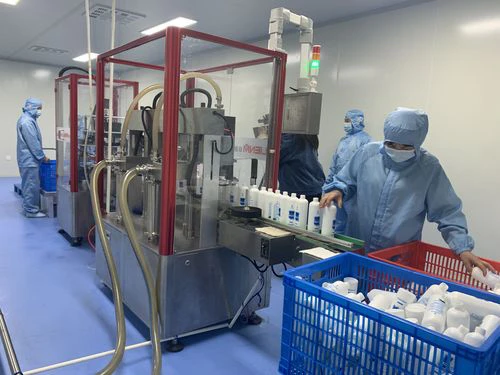- Afrikaans
- Albanian
- Amharic
- Arabic
- Armenian
- Azerbaijani
- Basque
- Belarusian
- Bengali
- Bosnian
- Bulgarian
- Catalan
- Cebuano
- Corsican
- Croatian
- Czech
- Danish
- Dutch
- English
- Esperanto
- Estonian
- Finnish
- French
- Frisian
- Galician
- Georgian
- German
- Greek
- Gujarati
- Haitian Creole
- hausa
- hawaiian
- Hebrew
- Hindi
- Miao
- Hungarian
- Icelandic
- igbo
- Indonesian
- irish
- Italian
- Japanese
- Javanese
- Kannada
- kazakh
- Khmer
- Rwandese
- Korean
- Kurdish
- Kyrgyz
- Lao
- Latin
- Latvian
- Lithuanian
- Luxembourgish
- Macedonian
- Malgashi
- Malay
- Malayalam
- Maltese
- Maori
- Marathi
- Mongolian
- Myanmar
- Nepali
- Norwegian
- Norwegian
- Occitan
- Pashto
- Persian
- Polish
- Portuguese
- Punjabi
- Romanian
- Russian
- Samoan
- Scottish Gaelic
- Serbian
- Sesotho
- Shona
- Sindhi
- Sinhala
- Slovak
- Slovenian
- Somali
- Spanish
- Sundanese
- Swahili
- Swedish
- Tagalog
- Tajik
- Tamil
- Tatar
- Telugu
- Thai
- Turkish
- Turkmen
- Ukrainian
- Urdu
- Uighur
- Uzbek
- Vietnamese
- Welsh
- Bantu
- Yiddish
- Yoruba
- Zulu
Dec . 05, 2024 02:56 Back to list
Water Soluble Powder Formulation of Florfenicol for Veterinary Applications
Understanding Florfenicol Water Soluble Powder A Comprehensive Overview
Florfenicol is a broad-spectrum antibiotic that is commonly used in veterinary medicine to treat bacterial infections in livestock and aquaculture. Its formulation as a water-soluble powder has made it particularly useful for various applications, allowing for easy administration and effective dosing. This article delves into the characteristics, uses, and considerations regarding florfenicol water-soluble powder.
What is Florfenicol?
Florfenicol is a synthetic antibiotic that belongs to the phenicol class of antimicrobials. It works by inhibiting protein synthesis in bacteria, thereby preventing their growth and replication. This mode of action makes florfenicol effective against a wide range of gram-positive and gram-negative bacteria, including those that are resistant to other antibiotics. It is particularly notable for its use in treating conditions like respiratory infections, enteritis, and other bacterial diseases in animals.
Formulation and Administration
Florfenicol is available in various forms, but the water-soluble powder formulation is one of the most advantageous. This allows for convenient mixing with drinking water, facilitating easy administration to larger groups of animals. The solubility of the powder ensures that the active ingredient is evenly distributed, providing a consistent dose to each animal. This can be particularly beneficial in agricultural settings where large numbers of livestock need to be treated simultaneously.
Applications in Livestock and Aquaculture
In livestock, florfenicol is used to treat and prevent various infections, particularly in cattle, swine, and poultry. Its efficacy in addressing conditions like pneumonia in cattle has made it a staple in veterinary medicine. In aquaculture, florfenicol is employed for the treatment of bacterial diseases in fish, helping to ensure healthier stock and reduced mortality rates. The ability to administer the drug through water makes it especially practical in these settings.
florfenicol water soluble powder

Regulatory Aspects and Safety
As with any medication, the use of florfenicol is subject to regulatory oversight. It is essential to adhere to guidelines set by veterinary authorities to ensure the drug is used responsibly and effectively. Farmers and veterinarians must follow prescribed dosages and treatment durations to minimize the risk of developing antibiotic resistance. Furthermore, there are specific withdrawal periods that must be observed before animals can be sent for slaughter or their products (like milk or eggs) can be consumed, ensuring that residues are minimized in food products.
Potential Side Effects and Considerations
While florfenicol is generally safe when used as directed, there are potential side effects that veterinarians and animal owners should be aware of. Some animals may exhibit signs of allergic reactions, while others might experience gastrointestinal disturbances. Monitoring during treatment is crucial, and if adverse reactions occur, discontinuation of use and veterinary consultation should be considered.
Moreover, the potential for resistance development remains a concern. As with all antibiotics, the misuse or overuse of florfenicol can lead to resistant bacterial strains, which can jeopardize both animal and human health. Therefore, it is vital to use this antibiotic judiciously, following veterinarians’ recommendations and best practices in animal husbandry.
Conclusion
Florfenicol water-soluble powder represents an important tool in the management of bacterial infections in both livestock and aquaculture settings. Its ease of administration, broad-spectrum efficacy, and proven effectiveness make it invaluable in veterinary medicine. However, its use must be coupled with a strong understanding of the associated guidelines and responsible practices to ensure that it continues to serve its purpose without contributing to the growing problem of antibiotic resistance. By prioritizing responsible use, veterinarians and farmers can maintain animal health and welfare while also protecting public health.
-
Guide to Oxytetracycline Injection
NewsMar.27,2025
-
Guide to Colistin Sulphate
NewsMar.27,2025
-
Gentamicin Sulfate: Uses, Price, And Key Information
NewsMar.27,2025
-
Enrofloxacin Injection: Uses, Price, And Supplier Information
NewsMar.27,2025
-
Dexamethasone Sodium Phosphate Injection: Uses, Price, And Key Information
NewsMar.27,2025
-
Albendazole Tablet: Uses, Dosage, Cost, And Key Information
NewsMar.27,2025













